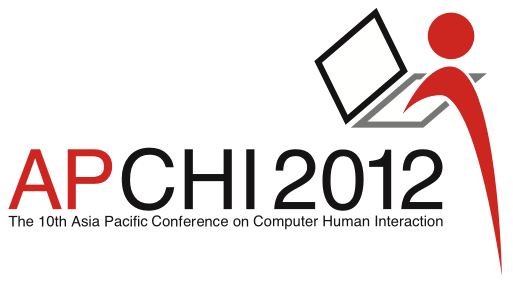Submissions
Paper
All submitted papers will be subject to a double-blind review process. Accepted papers will be categorized into two types: long talk and short talk. Papers may be 4, 6, 8 or 10 pages long in the ACM SIGCHI format. Papers accepted as long talks will be archived in the ACM Digital Library (indexed by ISTP and ACM) and included in a conference proceedings DVD. The authors of selected long talks will be invited to have their papers published in a special issue of the International Journal of Human-Computer Interaction (indexed by SCI) or a special issue of the International Journal of Innovative Computing, Information and Control (indexed by SCI) after further revision. Papers accepted as short talks will be included in a conference proceedings DVD. The long talks are assigned 25 minutes presentation time (including questions) at the conference. Authors of selected short talks will be invited to have their papers published at a special issue of ICIC Express Letters (indexed by EI) or a special issue of HCD-Net journal (ISSN: 1882-9635). The short talks are assigned 15 minutes presentation time (including questions).
Poster
All submitted posters will be reviewed by members of the program committee. Accepted posters will be included in a conference proceedings DVD. Posters should be 1 or 2 pages long in ACM SIGCHI format.
We recommend the author accepted for poster presentation to demonstrate your research (e.g., demonstrate your system with your laptop) in addition to present your printed poster. We will provide a desk, AC power supply and wired internet connection to each poster presenter.










